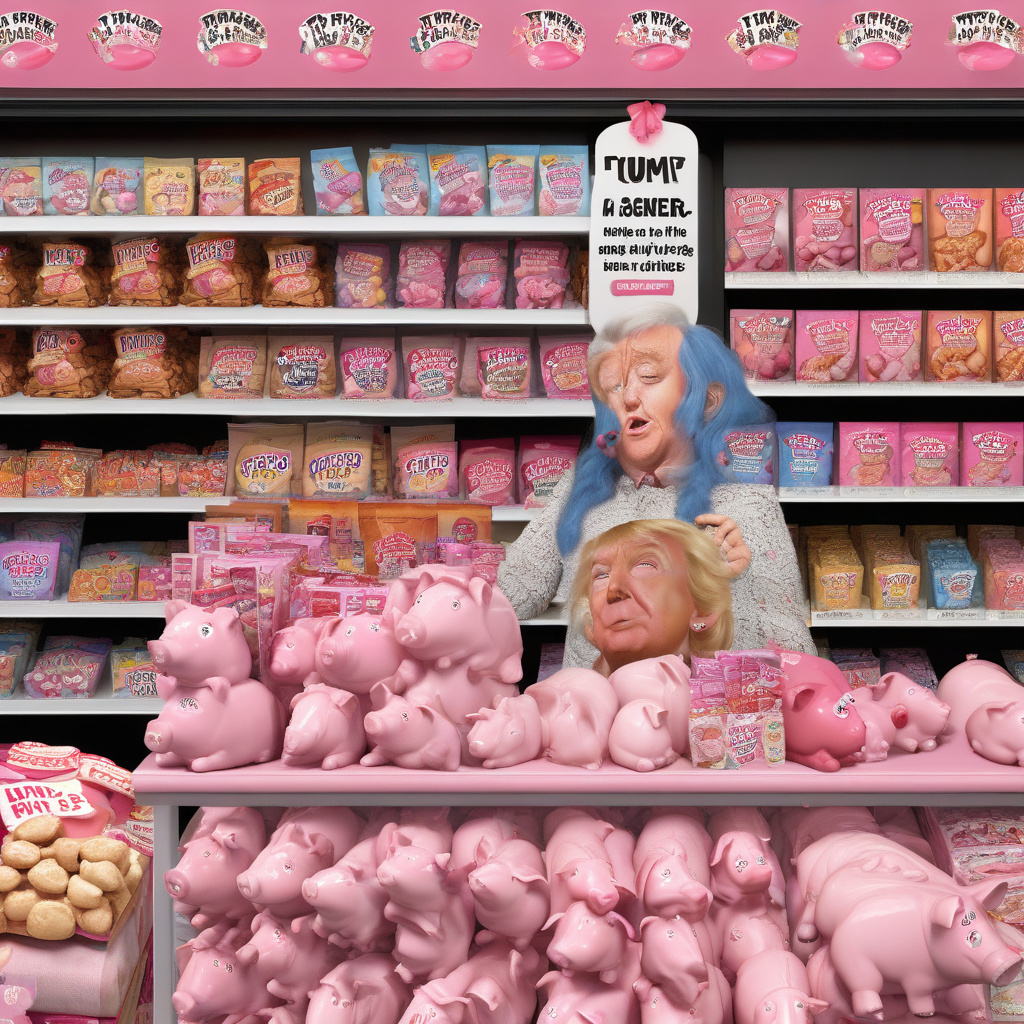From Percy Pigs to Price Pressures – What is the Impact of Trump Tariffs on UK Retailers?
The retail landscape in the United Kingdom has been significantly influenced by global economic shifts, with one of the most notable changes stemming from President Donald Trump’s tariff overhaul. These tariffs, primarily aimed at China but affecting international trade dynamics, have imposed new challenges for UK retailers, many of whom are now grappling with increased costs and pricing pressures. The impact of these tariffs extends from luxury goods to everyday essentials, with products as beloved as Marks & Spencer’s Percy Pigs feeling the squeeze.
One of the primary ways that UK retailers are affected by Trump’s tariffs is through the increased cost of imported goods. The tariffs are designed to make foreign products less competitive compared to domestic products in the US market, but the ripple effects can be felt across the Atlantic. For example, many UK retailers rely heavily on imports from countries affected by these tariffs, including China. When tariffs increase, the cost of these goods rises, leading to higher prices for consumers in the UK.
Consider the case of Marks & Spencer, a quintessential British retailer known for its Percy Pig sweets. The company sources a range of products from various countries, including the US and China. With tariffs in place, the costs associated with sourcing ingredients or packaging materials can surge, leading to a difficult decision for the retailer: absorb the costs or pass them on to consumers. While Marks & Spencer has a loyal customer base, there is a limit to how much consumers will tolerate price increases before they seek alternatives.
Another example is the clothing sector, which has also felt the impact of tariffs. Many UK fashion retailers source their products from Asia, particularly China, where manufacturing costs are lower. The tariffs imposed by the Trump administration have led to an increase in costs for these retailers, prompting some to reconsider their supply chains. Retailers such as Next and Primark have had to navigate these challenges carefully, balancing cost increases with the need to remain competitive in a price-sensitive market.
Moreover, the tariffs have not only increased costs but have also created a climate of uncertainty. Retailers are often hesitant to make long-term decisions, such as investing in new product lines or expanding their market reach, when they are unsure about future trade policies. This uncertainty can lead to a more cautious approach to inventory management, which can hinder growth and innovation in the sector.
In response to these pressures, some retailers are looking for ways to mitigate the impact of tariffs. Many are reevaluating their supply chains and exploring alternative sourcing options. For instance, some retailers are beginning to shift their manufacturing to countries less affected by tariffs, such as Vietnam or Bangladesh, where labor costs may still be competitive without the added tariff burden. This strategy not only helps in managing costs but also diversifies the risk associated with reliance on a single market.
Additionally, retailers are investing in technology to improve efficiency and reduce costs elsewhere in their operations. By automating processes or adopting more advanced inventory management systems, retailers can offset some of the increased costs associated with tariffs. This drive towards efficiency is not just a reaction to tariffs but a necessary evolution in a highly competitive retail landscape.
The situation is further complicated by the broader economic context in which UK retailers operate. The ongoing impact of Brexit, coupled with the global pandemic, has already strained the retail sector. Tariffs add another layer of complexity, forcing retailers to navigate a challenging environment where consumer behavior is also shifting. With inflationary pressures on the rise, consumers are becoming more discerning, leading to a potential decline in discretionary spending.
In conclusion, the impact of President Trump’s tariff overhaul on UK retailers is profound and multifaceted. From increased costs on beloved products like Percy Pigs to strategic shifts in supply chain management, retailers are facing a new reality that requires adaptability and innovation. As they navigate these challenges, it will be crucial for retailers to remain attuned to consumer sentiment while finding ways to maintain competitiveness in an unpredictable market.
In a time where retail is already under pressure from various fronts, the tariffs present an additional hurdle that retailers must overcome to ensure their survival and growth. The path forward will require a careful balance between cost management, strategic sourcing, and consumer engagement, ensuring that UK retailers can continue to thrive despite the complexities introduced by international trade policies.
retail, tariffs, UK retailers, Trump, Percy Pigs
